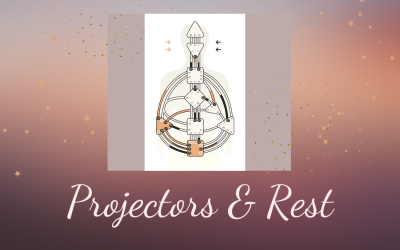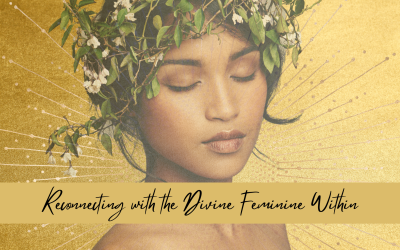We are counting down to the season finale of Lost on May 23. They were originally saying 2 hour season finale but now it looks like it will be a total of 5 hours (including a three hour recap..which we need).
So I thought what better time than to muse on it?
I do not pretend to know it all, it is impossible to know that, but thinking about it is great fun.
1. Are We Found or Are We Lost?
Sometimes in life we can feel very lost. What is our purpose? Why are we here? Is there a point?
Like many of the characters on Lost we spend many a day and night chasing our own tails, running around in circles and trying to find the deeper meaning in the superficial.
The island, very much like Earth, is a conundrum of beauty, darkness, joy and pain. We love life and we hate it all at the same time.
The people on the island are connected but why? Often in life we ask ourselves, “why is this person in my life? Are they supposed to be?”
Those who are lost on the island and cannot find their way off of it, are the ones who have not reached spiritual enlightenment. They are the people who have done such bad deeds that they are stuck here in their own, personal hell.
The oceanic 6, which is really more like an oceanic 12, are allowed back and forth off the island as they contemplate their own realities and existence. What path will they choose?
2. Becoming Found?
Enlightenment, nirvana, heaven. Many religions have an ultimate goal of spiritual grown and freedom. The Earth, or the island, can shackle us, keep us locked up and chained and the only way to go into the light is to accept it. The only way off the island, is to free yourself.
Shepherd and Locke- the two most pivotal characters on Lost are both searching for this enlightenment.
When we first meet Shepherd and Locke they are polar opposites. Shepherd, a man of science, doesn’t believe in fate, faith, or a higher purpose. Locke, the spiritual man, believes that everything happens for a reason, he feels guided by a higher power. And so the two split off, creating two seperate teams to get off the island.
Who do you pick? The man with the scientific knowledge to get you off the island? Or the man who is following his chosen path?
The irony? Jack Shepherd- his last name alone is a very spiritual reference. The shepherds in Christianity are symbolic as spiritual leaders and guides in the Bible. In one episode entitled ‘Psalm 23’, Mr. Ecko and Charlie recite “The Lord is my Shepherd, I shall not be in want…”
The full Psalm 23
The Lord is my shepherd; I shall not want.
He makes me lie down in green pastures.
He leads me beside still waters.
He restores my soul.
He leads me in paths of righteousness
for his name’s sake.
Even though I walk through the valley of the shadow of death,
I will fear no evil,
for you are with me;
your rod and your staff,
they comfort me.
You prepare a table before me
in the presence of my enemies;
you anoint my head with oil;
my cup overflows.
Surely goodness and mercy shall follow me
all the days of my life,
and I shall dwell in the house of the Lord
forever.
Meanwhile Locke, a spiritual man, seems to have died and risen again. He died only to be taken over by the ‘Man in Black’, a large dark force that seems to conquer everywhere it goes. Dying and then living again is clearly a Christian reference, but Lost does not just make reference to Christian religious dogma in the show.
Other christian references:
- There have been many scenes of baptism or spiritual cleansing. For example in one episode Sayid is taken to the temple where he is submerged in water until he dies. Once he dies he comes back to life and begins his quest to follow Locke (who is no longer Locke). He says to Locke “I don’t feel anything at all, I don’t feel happy, sad, angry, I don’t feel anything.” To which Locke responds, “Good, you’re going to need that for where we are going.”
- “The shadow of death” referred to in Psalm 23 may also be connected to the black smoke that is linked to the Man in Black. Locke may be collecting the lost souls, the ones who cannot make it to ‘heaven’ or ‘nirvana’
- Mr. Ecko carried a staff that was filled with biblical quotes.
Other religions:
- The dharma initiative is a reference to Hinduism and Buddhism. One’s ‘dharma’ is complex but this site seems to give a good explanation of the Buddhist philosophy of dharma – ““Dharma” means “protection”. By practising Buddha’s teachings we protect ourself from suffering and problems. All the problems we experience during daily life originate in ignorance, and the method for eliminating ignorance is to practise Dharma.” Therefore pushing the button in the hatch can be connected to our suffering on earth, how we feel we must do menial tasks over and over again.
- Egyptian architecture
- Islamic teachings seen through the character Sayid.
- Existentialism – Life is nonsensical and our task is to try to make sense of it all. According to Wikipedia:
Existentialist thinkers focus on the question of concrete human existence and the conditions of this existence rather than hypothesizing a human essence, stressing that the human essence is determined through life choices. However, even though the concrete individual existence must have priority in existentialism, certain conditions are commonly held to be “endemic” to human existence.
What these conditions are is better understood in light of the meaning of the word “existence,” which comes from the Latin “existere,” meaning “to stand out.” Man exists in a state of distance from the world that he nonetheless remains in the midst of. This distance is what enables man to project meaning into the disinterested world of in-itselfs. This projected meaning remains fragile, constantly facing breakdown for any reason — from a tragedy to a particularly insightful moment. In such a breakdown, we are put face to face with the naked meaninglessness of the world, and the results can be devastating.
Existentialist hold to eight truths of the human experience:
1. Angst
2. Freedom
3. Facticity
4. Authenticity and Inauthenticity
5. The Other and the Look (NOTE THE OTHERS)
The experience of the Other is the experience of another free subject who inhabits the same world as a person does.
6. Reason
7. The Absurd.
You can read more about existentialism here: http://en.wikipedia.org/wiki/Existentialism
There are WAY more and I don’t claim to be any kind of Lostpedia or anything. But we shall see as these next few episodes pan we are sure to know more. Hopefully we won’t be disappointed.
Please check out my poll!
[polldaddy poll=3122325]










0 Comments